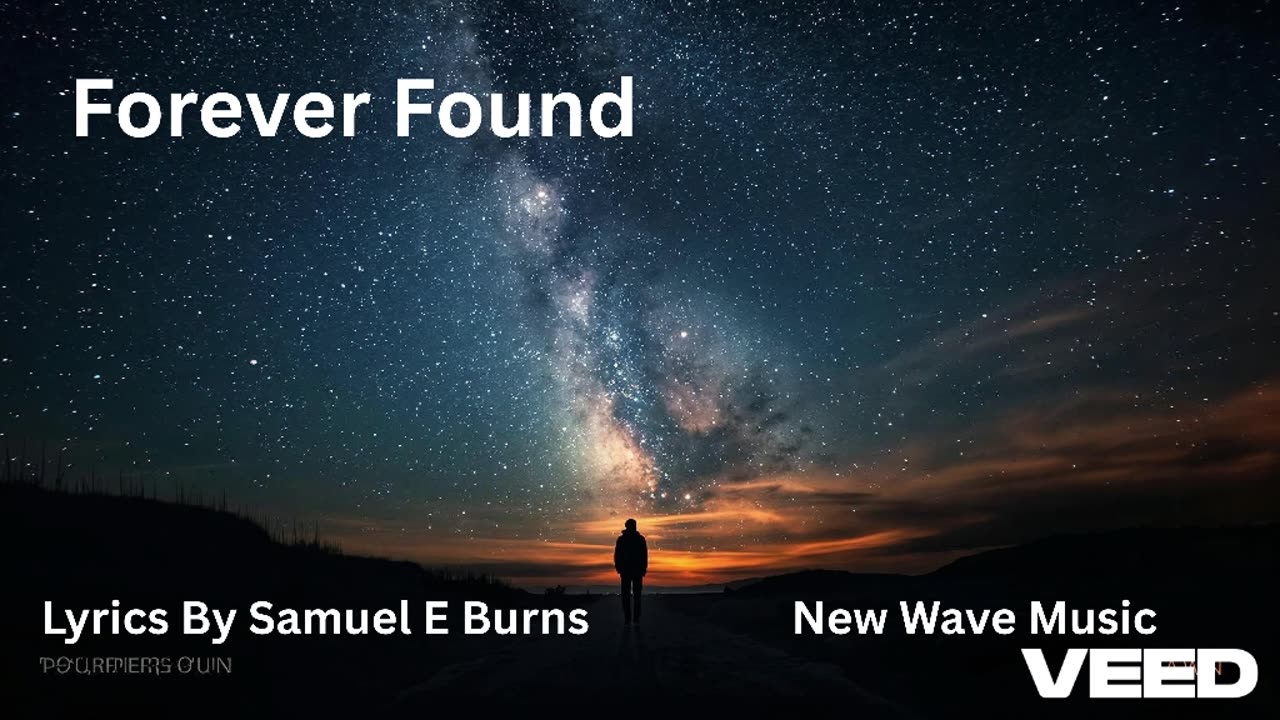Premium Only Content

“Forever Found” by Samuel E Burns
Samuel E Burns’ “Forever Found” is a sweeping, emotionally charged narrative of faith, legacy, and redemption. Where “The Choice” explored the intimate moral struggle of a single soul, “Forever Found” expands that canvas — telling a multi-generational story that moves like a hymn through heartbreak, belief, and renewal.
From its opening stanza — “She was born with, / Name carved in stone, / A legacy of blood, / Heavy and cold” — the listener is immediately pulled into a world burdened by destiny and expectation. Burns’ language is both poetic and cinematic; he doesn’t just tell us about inherited pain — he makes us feel the weight of it. The “name carved in stone” evokes both lineage and gravestone, a haunting image of a life pre-written before it’s even lived.
The relationship between the woman and the preacher forms the emotional heart of the piece. Burns paints their love not as a fairy tale but as a fragile rebellion — a quiet act of grace against the inevitability of ruin. “They built a life on hope and prayer, / But the winds of fate blew heavy and unfair.” That line could stand as the thesis of the entire song: hope can be built, but it cannot always withstand the storm unscathed.
The lyrics balance the sacred and the human with a deft touch. Questions of faith — “Does God still see them, / Does He still know?” — mingle with raw human longing. Burns doesn’t offer simple answers. Instead, he allows the spiritual doubt to deepen the emotional realism, making the listener feel both the ache of lost faith and the resilience of love that keeps believing anyway.
As the song progresses, the imagery of night and stars becomes a powerful metaphor for despair and renewal. In the first verses, “The stars are hiding, / The night is long,” symbolizing desolation and confusion. But by the end, “The stars are rising, / The dawn is near,” — a transformation that feels earned, not imposed. It’s a resurrection that comes through endurance, through choosing love over legacy, grace over guilt.
The final repetition of “Forever found” serves as both closure and transcendence — a benediction after the storm. The phrase feels simple, but it carries immense emotional gravity: what was once lost to the past, faith, and fate is now reclaimed through forgiveness and unity.
Stylistically, Burns continues his signature strengths: grounded storytelling, spiritual undertones, and poetic minimalism. His repetition is purposeful — building rhythm, emphasizing moral tension, and giving the song the structure of a modern folk ballad or gospel lament. You can almost hear the music swell and resolve with each chorus.
“Forever Found” is a luminous, redemptive journey through loss and faith, a companion piece to “The Choice” but on a grander scale. Burns shows not just the pain of the human spirit, but its capacity for rebirth. It’s a story of two souls who refuse to be defined by the darkness behind them — who choose love, not legacy, and in doing so, find themselves “forever found.”
-
 4:29
4:29
New Wave Music
4 days agoThat Okefenokee Swamp Lyrics By Samuel E Burns
303 -
 19:31
19:31
Liberty Hangout
3 days agoAnti-Trumpers Repeat CNN Talking Points
33.9K91 -
 LIVE
LIVE
Jeff Ahern
46 minutes agoThe Sunday Show with Jeff Ahern
145 watching -
 27:41
27:41
DeVory Darkins
1 day agoMarjorie Taylor Greene STUNNED after Trump pulls her endorsement
15.5K210 -
 32:41
32:41
Tactical Advisor
2 hours agoNew Red Glock? | Vault Room Live Stream 045
28.6K3 -
 LIVE
LIVE
Major League Fishing
3 days agoLIVE! - Fishing Clash Team Series: Summit Cup - Day 1
933 watching -
 4:38
4:38
Talk Nerdy Sports - The Ultimate Sports Betting Podcast
4 hours agoNFL SUNDAY — Top 10 Locks You NEED to See (Nov 17)
18.8K -
 18:03
18:03
Nikko Ortiz
2 hours agoNikko Ortiz Night Routine...
8K4 -
 21:37
21:37
Forrest Galante
15 hours ago6 Deadly Sea Monsters That Actually Exist
109K7 -
 LIVE
LIVE
JdaDelete
3 hours ago $0.69 earnedElden Ring | First Playthrough Episode 10
135 watching